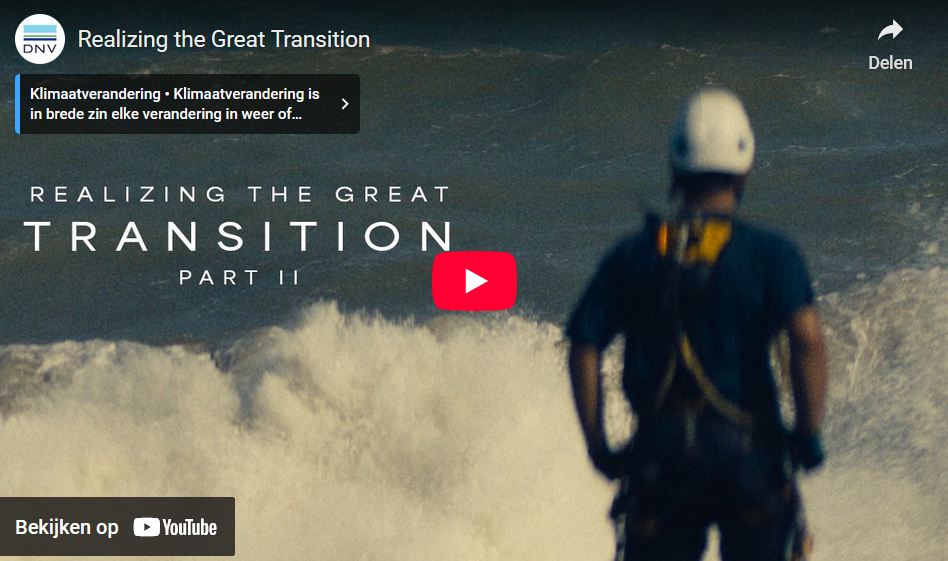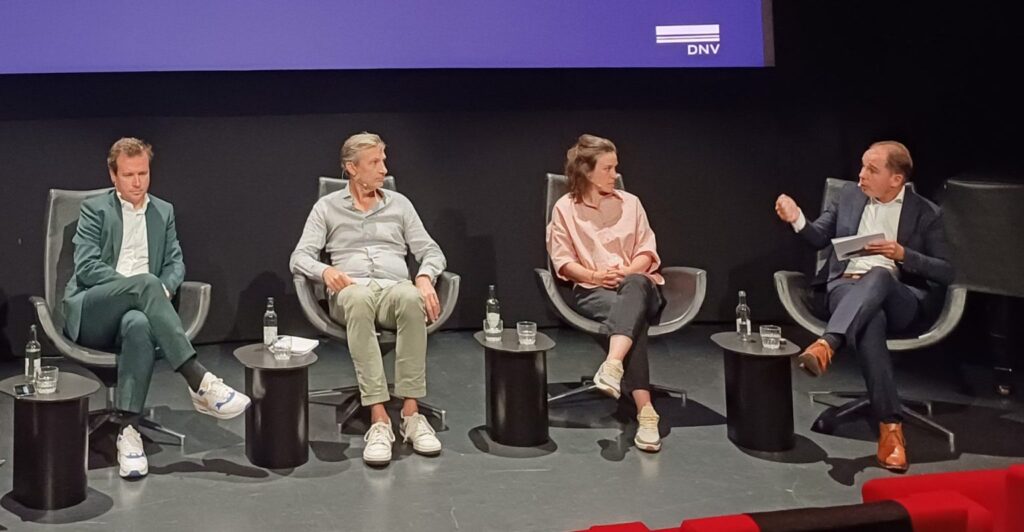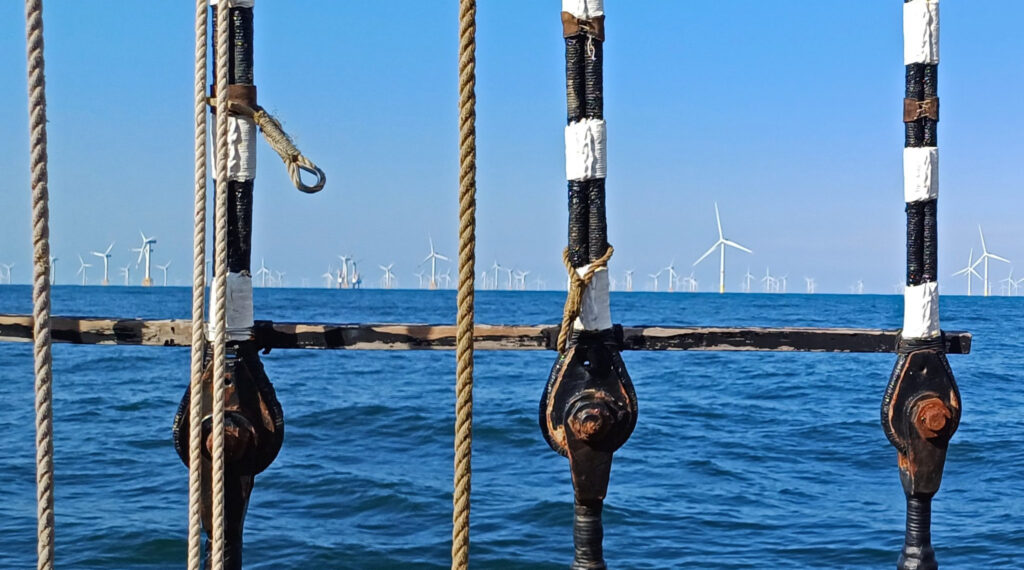DNV aims to drive energy transition globally
The global energy transition needs to be speeded up. So says maritime classification society DNV, which points out the consequences of climate change.
‘We no longer need pathetic polar bears and forest fires to signal urgency. We all know we have a problem and need to say goodbye to fossil fuels. Now is the time for action.’ Speaking is marketeer Caroline Kamerbeek of DNV. She spoke 19 August at filmmuseum Eye in Amsterdam during the premiere of a film released by the class office on the importance of a rapid transition.
Originally from Norway, DNV is one of the largest classification societies in the world. It has no profit motive, but its motto is ‘protection of life, property and nature’. The film aims to give a voice to ‘the silent middle’, says Kamerbeek. ‘Some 80% of the world’s population is concerned about climate change and some 40% are already noticing the effects. We see activists on television, but not ordinary people who are concerned.’
New opportunities
Worldwide, maritime shipping still runs mainly on fuel oil. Heavy industry also still runs almost entirely on fossil fuels, which are warming the earth. Ending this is a huge operation, but, according to DNV, it also offers opportunities. ‘The transition provides jobs, creates clean nature and can be affordable. If only we do it big.’

The 18-minute film The Great Transition, is set in the future. It is 2064 and several people look back at 2025 and how we thought about transition then. It seems like a dystopian film. That we all knew things would go wrong if we kept emitting carbon, but we did nothing because of our energy addiction. But then comes the twist and it turns out that the world did switch to sustainable alternatives, halting climate change.
According to DNV, the switch is less difficult than it seems, but politicians need to articulate a vision and take concrete action. Director Maurice Adriaensen explains: ‘The government must take central control and ensure that we switch to electricity, hydrogen and other sustainable energy carriers faster. Green energy must become feasible, scalable and affordable. The infrastructure needs a thorough overhaul to stop grid congestion.’
The classification society drew up the report Heel Nederland op schone energie (All the Netherlands on Clean Energy) with concrete tips and goals to accelerate the energy transition. The government should establish more subsidies and schemes to smoothly transition shipping to alternative fuels, among other things.
Panel discussion

After the film screening to a room full of politicians, journalists and energy experts, a panel discussion on the future followed. Psychologist and self-proclaimed climate optimist Daan Remarque commented that the message needs to be packaged differently. ‘If we say we can use cheap, clean energy from home, people are in favour. That is exactly what offshore wind turbines provide.’
Director Hans-Peter Oskam of Netbeheer Nederland is particularly concerned whether the government realises that action is indeed needed. ‘We assume that in 2035 the last gas power plant will close and we will have no more coal plants. We have to start making choices and, for example, give more space to offshore wind farms. We now understand the urgency, now it is time for agency. We have to act.’
DNV director Adriaensen: ‘The technology is there and so is the capital, we now have to start implementing it. This concerns everyone, we have to do it together. Together, and we can do it.’
Major campaign
DNV has thus launched a major campaign to drive the conversation about alternative fuels worldwide. The initiative, The Great Transition, started in the Netherlands before being rolled out in Australia, Brazil, Canada, Germany, Norway, Spain and the UK. DNV hopes that the campaign can make a difference in the Netherlands in the upcoming Dutch parliamentary elections.
Source: an article by Tessa Heerschop in the Schuttevaer (subscribers only)
Headline photo: ©Tessa Heerschop


